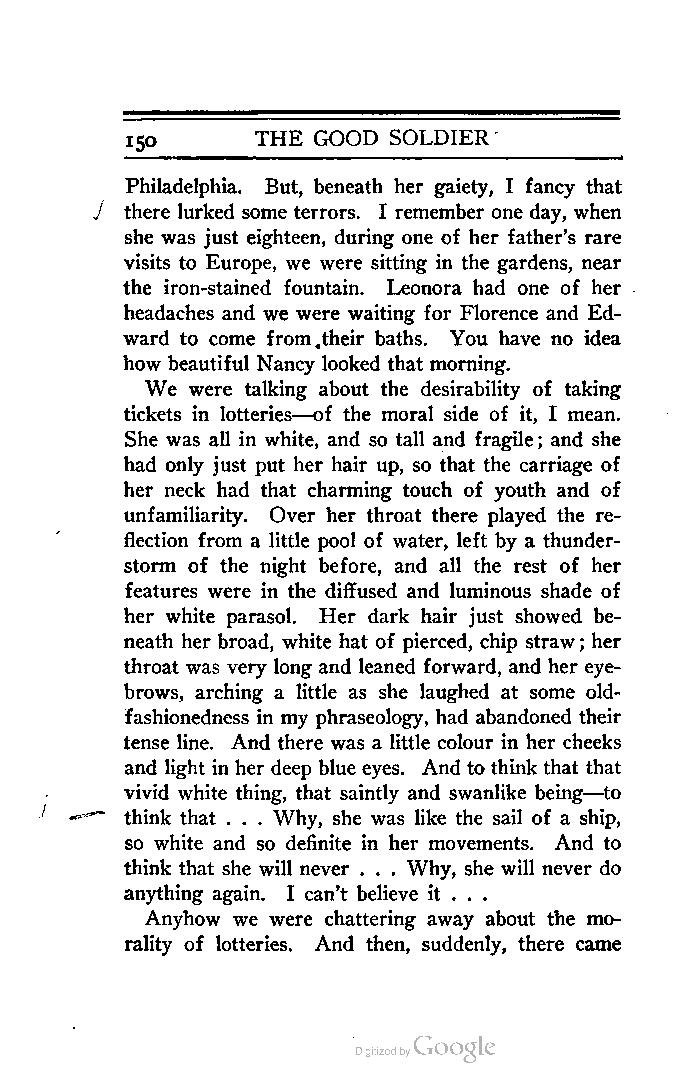Philadelphia. But, beneath her gaiety, I fancy that there lurked some terrors. I remember one day, when she was just eighteen, during one of her father's rare visits to Europe, we were sitting in the gardens, near the iron-stained fountain. Leonora had one of her headaches and we were waiting for Florence and Edward to come from their baths. You have no idea how beautiful Nancy looked that morning.
We were talking about the desirability of taking tickets in lotteries—of the moral side of it, I mean. She was all in white, and so tall and fragile; and she had only just put her hair up, so that the carriage of her neck had that charming touch of youth and of unfamiliarity. Over her throat there played the reflection from a little pool of water, left by a thunderstorm of the night before, and ail the rest of her features were in the diffused and luminous shade of her white parasol. Her dark hair just showed beneath her broad, white hat of pierced, chip straw; her throat was very long and leaned forward, and her eyebrows, arching a little as she laughed at some old-fashionedness in my phraseology, had abandoned their tense line. And there was a little colour in her cheeks and light in her deep blue eyes. And to think that that vivid white thing, that saintly and swanlike being—to think that . . . Why, she was like the sail of a ship, so white and so definite in her movements. And to think that she will never . . . Why, she will never do anything again. I can't believe it . . .
Anyhow we were chattering away about the morality of lotteries. And then, suddenly, there came
